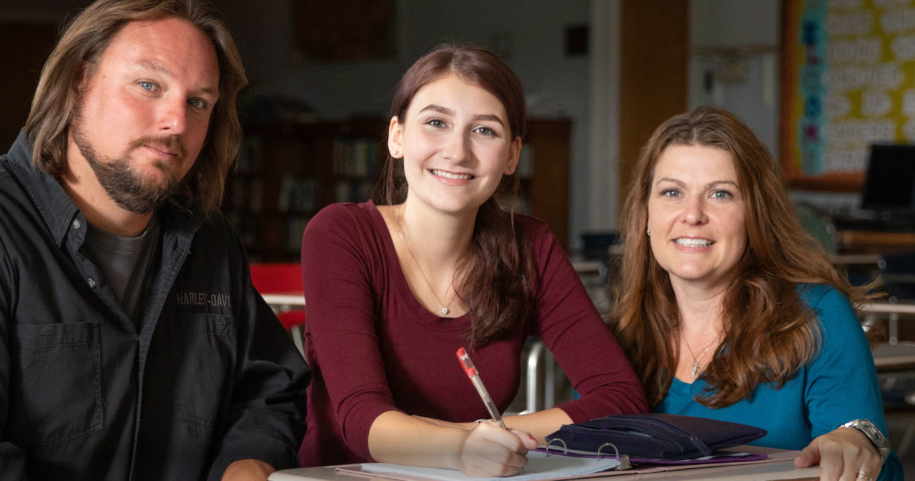
The question of whether parents in Maine can send their children to religious schools using a K-12 state aid program will come another step closer to resolution this week when the nation’s highest court hears arguments in a case that could also influence whether other states adopt school choice programs.
The justices are scheduled to hear arguments at 10 a.m. Wednesday in Carson v. Makin, (Case No. 20-1088) which pits two families (a third has since withdrawn) against the state of Maine and its “town tuitioning” program that prohibits participants from sending their children to schools that include religious instruction. Arguments will be live streamed.
Though the case directly affects families in Maine, the ruling has national implications, said Michael Bindas, a senior attorney at the Institute for Justice, a nonprofit organization that represents plaintiffs in civil liberties cases. Bindas will argue the case before the high court this week.
Based on the number of amicus curiae, or “friend of the court” briefs – 33 in support of the plaintiffs and 12 opposed — the case has generated tremendous interest.
“Oftentimes when a school choice program is proposed, school choice opponents will run to the legislature and argue that they can’t adopt a school choice program because their state constitution prohibits public funds flowing to religious schools,” Bindas said.
He added that almost inevitably, “opponents will run to the courthouse to challenge it.”
“If the Supreme Court holds correctly … and says state law cannot single out and exclude religious options from these types of programs … then the argument that school choice opponents have consistently made in statehouses and courthouses will be removed once and for all.”
Bindas said a favorable ruling would assure states that allow religious school participation to be “legally bulletproof” while convincing states that were “on the fence” about such programs that they could safely move forward.
Since 1873, Maine has allowed families in areas without public schools to use taxpayer dollars to send their children to participating private schools. The controversy began in 1980 when the state’s attorney general issued an opinion that said allowing state aid to go to religious schools that promote “a faith or belief system” would violate the First Amendment’s ban on government establishment of religion.
The Maine Legislature responded by banning religious schools from participating in the state aid program.
The law withstood a challenge in 2002 when a Maine court upheld the state. However, the challenge of a ban of a Missouri church-affiliated preschool’s participation in a public benefit program to renovate playgrounds won a victory at the U.S. Supreme Court, which encouraged advocates of faith-based education and school choice.
A year later, school choice advocates scored a landmark victory when the U.S. Supreme Court ruled in Espinoza v. Montana Department of Revenue that religious schools cannot be excluded from school choice programs simply because they are religious. But the case addressed only the status of the schools and not whether they incorporated religious instruction or practices.
That issue was left unclear, explained Bindas, whose organization also represented the plaintiffs in that case.
Because Maine’s law bases its ban on religious instruction, lower courts hearing Carson v. Makin have sided with the state, which contends that “public education” means participating schools must offer only secular instruction.
“It is not the religious status of an organization that determines whether they are eligible to receive public funds, but the use to which they will put those funds that dictates the result,” the Maine Attorney General’s office, which is defending the state law, said in the brief it filed in Washington, D.C. “In excluding sectarian schools, Maine is declining to fund explicitly religious activity that is inconsistent with a free public education.”
Bindas said it should come as no surprise that religious schools do religious things. After all, that’s what makes them religious in the first place.
“One of our main arguments here is this is really a distinction without a difference,” he said. “Maine seems to argue although a state cannot discriminate against schools because they are religious, that it’s perfectly free to discriminate against them because they do religious things, and we just think that’s splitting hairs, and regardless of whether you call it used based or whether you call it status based, it’s unconstitutional all the same, and we fully expect the court will hold as much.”
The Supreme Court is expected to issue its ruling in spring or summer.


